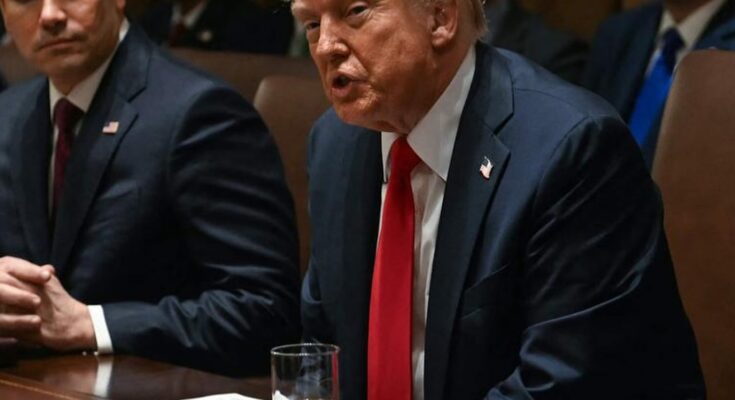A recent statement allegedly attributed to former U.S. President Donald J. Trump has sparked widespread discussion regarding the ongoing diplomatic and geopolitical tensions surrounding the Russia-Ukraine conflict. The statement claims that Trump held a “very meaningful meeting” in the White House, during which he determined that Ukrainian President Volodymyr Zelenskyy was “not ready for peace.” The statement further implies that Zelenskyy sees U.S. involvement as a leverage point in negotiations, something that Trump rejects in his pursuit of peace.
A Question of Legitimacy
Before delving into the implications of this statement, it’s crucial to address the credibility of the post. In today’s digital age, misinformation and fabricated posts can spread rapidly, particularly on platforms such as X (formerly Twitter). The image appears to be a screenshot of a tweet from Trump’s verified account, yet there is no confirmation from major news outlets or Trump’s official communications. If authentic, this statement would represent a significant shift in the narrative surrounding the U.S. role in the Ukraine conflict.
The Peace vs. Advantage Debate
The most striking aspect of this statement is Trump’s assertion that Zelenskyy is “not ready for peace” because he views American involvement as an advantage in negotiations. This claim raises several key questions:
- Does Ukraine truly have a negotiating advantage due to U.S. involvement? Given the billions of dollars in military and financial aid provided by the U.S. to Ukraine, it is undeniable that American support plays a crucial role in strengthening Ukraine’s position. However, whether this constitutes an “advantage” or merely levels the playing field against Russian aggression remains a topic of debate.
- Would peace be possible without American involvement? Trump’s statement implies that American intervention is hindering peace, rather than facilitating it. This perspective contradicts the prevailing view in Washington and among NATO allies, who argue that U.S. support is essential for Ukraine’s survival and sovereignty.
Diplomatic Fallout and Future Implications
Trump’s claim that Zelenskyy “disrespected the United States in its cherished Oval Office” is another noteworthy aspect of the statement. It suggests that the meeting was tense and that Trump perceived Zelenskyy’s stance as an affront to American interests. If true, this could indicate a potential shift in U.S.-Ukraine relations should Trump return to office in 2025.
Furthermore, Trump’s final remark—stating that Zelenskyy can return “when he is ready for peace”—implies a conditional relationship between the U.S. and Ukraine, possibly foreshadowing a more isolationist stance in future diplomatic engagements. This aligns with Trump’s historical rhetoric, which often emphasizes prioritizing American interests over international involvement.
Conclusion
While this statement, if verified, could indicate a significant shift in U.S. foreign policy, it remains crucial to examine its authenticity. Regardless, the implications of Trump’s alleged stance—particularly regarding Ukraine, Russia, and America’s role in global peace negotiations—are profound and warrant further scrutiny. As the 2024 U.S. presidential election approaches, such statements could shape both domestic political discourse and international relations in the years to come.



